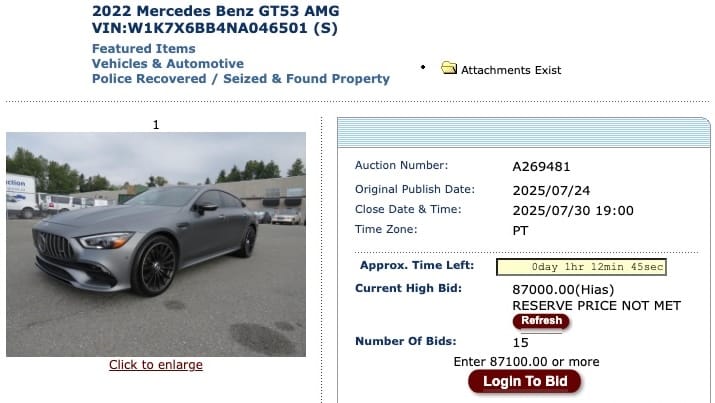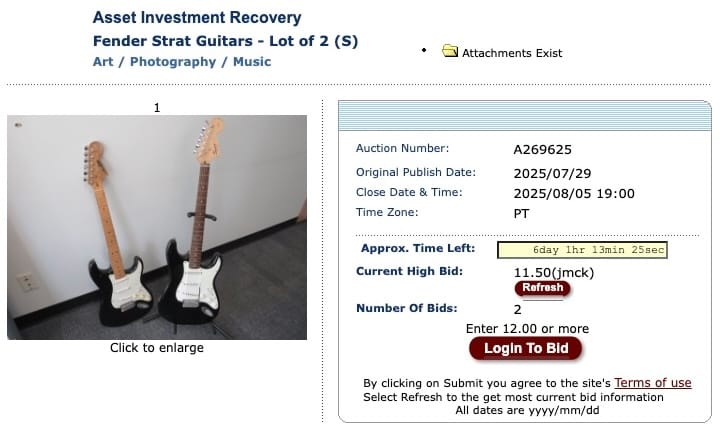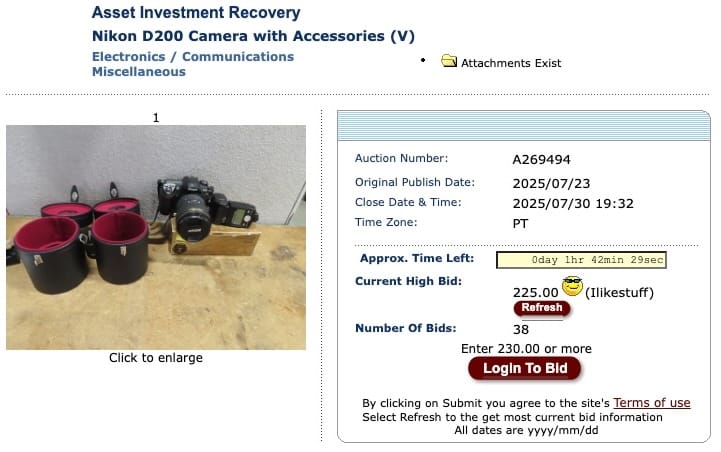Sports cars and Harleys and trucks, oh my: B.C.’s civil forfeiture office is a poke in the eye for criminal offenders
Proceeds of crime are seized from criminals, vehicles and items are sold at auction, funds help with community programs
When people are convicted of crimes, ever wonder what happens to the iPhone they used to deal those drugs, the vehicle they were pulled over driving, the wads of cash found in their apartment?
This is the purview of B.C.’s unvaunted civil forfeiture office (CFO) that deals with property seized under the province’s Civil Forfeiture Act.
Richard MacInnes was convicted of dumping the body of Michael Scullion in the Fraser River in 2008 after the two were in a fight outside a bar in Harrison Hot Springs. He was convicted of indignity to human remains, not homicide, and sentenced to 18 months jail. The drug dealer is also before the courts currently for trafficking and firearms charges, but he also might lose his house on Rosepark Place in Rosedale, his 2020 Jeep Wrangler, $17,822 in Canadian cash and small amounts of U.S. and Mexican currency.
B.C.’s Director of Civil Forfeiture filed a notice of civil claim against Richard Drew MacInnes in B.C. Supreme Court in Victoria on Feb. 24, 2025.
Seizures of the proceeds of crime of this kind happen more than most people know, especially if a person’s measure of criminal activity in their community comes from media coverage. You just don’t hear about it.
While I was looking for the details of MacInnes's Wrangler, I perused a list of vehicles taken away from criminals by the government just in Chilliwack in 2024, an often unreported bit of punishment faced by those committing crimes.
There are dozens and dozens. Here are a handful of examples seized for being used in the commission of an offence:
• On June 21 on Roseberry Road a 2012 Dodge Ram (worth ~$5,000);
• On May 1 at Brice Road and Kent Road, a 2013 Lincoln MKZ (worth ~$8,000);
• On Nov. 6 in the 9100-block of Corbould Street they seized a 2013 Ford Mustang (worth $10,000-$15,000);
• On July 28 police seized a 2024 GMC Sierra at McGrath and Camp River roads (worth $40,000-$75,000); and
• On May 25, likely one of the more upsetting for the unlucky offender given how much bikers love their bikes, a 2009 Harley Davidson was seized in the 9000-block of Woodbine Street (worth $10,000-$19,000).
What's the process?
If you get arrested committing a crime in B.C., property is sometimes seized and the police agency can apply to have it forfeited to the CFO, which is a self-funded organization. Seized cash from drug dealers and vehicles from gangsters are used to fund operations, legal costs, but also to fund the civil forfeiture grant and victim compensation programs. About half of all proceeds are reinvested into community programs.
Cash specifically goes into the CFO account, while vehicles and other items seized are sold through the BC Auction platform, which is run by the Ministry of Citizen Services.
Some items are donated to law enforcement agencies before being auctioned for outreach programs, such as anti-gang messaging.
If you go to the BC Auction website, there is lots of stuff for sale, not all of it the proceeds of crime of course, from restaurant equipment to electronics to jewelry to tools, but also items recovered, found, or seized by police.
As of this week up for auction on the site under the category of seized by police is mostly bicycles, unsurprisingly now several e-bikes. But there are also golf clubs, Victoria Secret garments. Also on that list and the “featured” list is a $100,000-valued 2022 Mercedes Benz GT53 AMG (bidding as of Wednesday, July 30, was at $87,000), two Fender Strat guitars, and camera equipment.



BC Auction items for sale this week.
Owners who have items seized can oppose the forfeiture by filing a judicial claim (for property and other items worth more than $75,000) or an administrative dispute for less valuable items within 60 days.
Interestingly, a recent amendment to the Civil Forfeiture Act in 2023 included the creation of an unexplained wealth order (UWO), which was introduced after a recommendation from the Cullen Commission of Inquiry into Money Laundering in British Columbia released in 2022.
Essentially, the principle behind a UWO is to have a person who acquired questionable wealth explain how they obtained it before a BC Supreme Court judge.
-30-
Want to support independent journalism?
Consider becoming a paid subscriber or make a one-time donation so I can continue this work.
Paul J. Henderson
pauljhenderson@gmail.com
facebook.com/PaulJHendersonJournalist
instagram.com/wordsarehard_pjh
x.com/PeeJayAitch
wordsarehard-pjh.bsky.social
